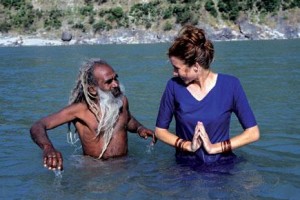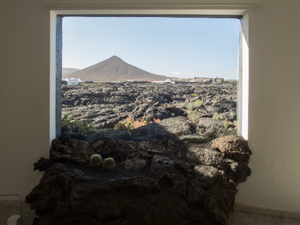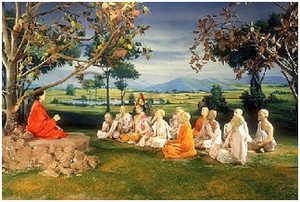Whenever I hear of ‘adhkAritva’, I am reminded of the ‘Graduate Quals’ or Prelims in the North American Universities.
Every aspiring candidate for Grad studies has to cross these nightmarish (for some) mandatory ‘hurdles on the course’ in order to “to continue studies at a higher level, and/or allow the student to comprehend his/her studies and see how prepared they are for the looming” super-knowledge he/she will earn.
In India, I understand, that such Prelims are introduced for admission of even Nursery class students by some elite schools to filter the mad rush of applications from the parents seeking the entry of their wards into the portals of those exclusive repositories of wisdom.
Perhaps there is a reason for all such uncanny devices of regulation and control where an ‘organized educational program’ requiring an approved Governmental Accreditation is involved
But for imparting the simple teaching that, at its core, says you are already that ‘nitya suddha buddha mukta‘ which you seek to know, do we have to have these mandatory regulations?
In fact it is said in spiritual matters that there is no teaching unless a question is asked. And it is equally true that there cannot be a fixed teaching cast in a rigid framework of curriculum because the teaching has to be molded as a melodious tune in a waltz-like dance with the spiritual aspirant’s questions. There cannot be ‘institutionalization.’
After all, it is not about running the ‘business’ of “teaching shops” with product guarantees in a market environment. The spiritual Seekers these days come with a maturity of brain and having had varied experience in the phenomenal world. They come (mostly) with open minds to ‘question’ and are courageous to be irreverent (not impertinent). These are not like the students in the good old ancient days when a ‘brahmachari’ is sent away to the ‘Gurukula’ at the tender age of 7-10 when even the brain cells of the kid have not yet matured, basic knowledge skills and analytical acumen are not yet learnt and the lad had to be educated even in the three R’s. Enormous times are spent in preparing their wavering child-minds to develop focus and attention, deductive and inductive logic, discrimination and discretion etc. Do we need to repeat all that on a 30 or 40 or 50 or whatever age person?
All that the advaita teaching talks about is deconstructing the belief structures of the seeker. If the belief is in ego, egolessness is the teaching. If the belief is a hidden feeling in the nooks and corners of the body or mind, the teaching has to shine light to illuminate those hidden quarters.
On another note, it has to be said that the programs for ‘training trainers’ have perhaps a greater need for implementing stricter eligibility criteria. The reasons are obvious. The prospective teachers have a responsibility not to mislead the eager seeker, should be able to maintain the pristine purity and integrity of the essence of the message and so on.
So steps to regulate them will hopefully help in curbing the mushrooming growth of the ‘industry’ of spiritual teaching being run on MNC marketing models, self-perpetuating their own authority and ‘brand development’ through their “Quals.”




